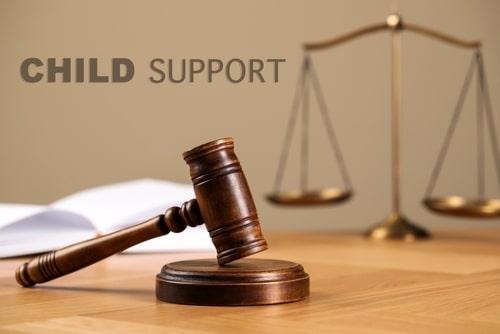Recent Blog Posts
I Filled Out a Power of Attorney at the Hospital - is it Enough?
 Most people who have gone under anesthesia for a procedure have been asked to fill out a power of attorney form at the hospital. This is a precaution meant to protect the hospital as much as it protects you. The physician performing your procedure needs to know who should step in to make decisions on your behalf if something goes wrong during your procedure. While this form will likely suffice to allow your chosen person to make medical decisions in the event that something does go wrong during your procedure, it should not generally be used as a long-term solution. The power of attorney forms that hospitals provide generally only cover one of the two major types of powers of attorney. Most if not all adults need both medical and financial powers of attorney. It is best to work with an attorney to create strong and specific powers of attorney.
Most people who have gone under anesthesia for a procedure have been asked to fill out a power of attorney form at the hospital. This is a precaution meant to protect the hospital as much as it protects you. The physician performing your procedure needs to know who should step in to make decisions on your behalf if something goes wrong during your procedure. While this form will likely suffice to allow your chosen person to make medical decisions in the event that something does go wrong during your procedure, it should not generally be used as a long-term solution. The power of attorney forms that hospitals provide generally only cover one of the two major types of powers of attorney. Most if not all adults need both medical and financial powers of attorney. It is best to work with an attorney to create strong and specific powers of attorney.
Why You Also Need a Financial Power of Attorney
Who Makes Important Decisions About Our Child's Upbringing After a Divorce?
 Issues concerning children during a divorce can be highly contentious. Generally, both parents want to spend as much time with their child as possible. The time a child spends with each parent is referred to as “parenting time” in Illinois. There is another type of custody as well. Formerly called “legal custody,” the allocation of parental responsibilities refers to a process in which the responsibility of making important decisions about a child’s upbringing is allocated. This may be done by mutual agreement of the parents, or it may be determined by a judge if the parents cannot reach a reasonable agreement. In the majority of cases, both parents will share some decision-making responsibility. However, there are cases where one parent is solely or primarily responsible for making decisions on behalf of the child.
Issues concerning children during a divorce can be highly contentious. Generally, both parents want to spend as much time with their child as possible. The time a child spends with each parent is referred to as “parenting time” in Illinois. There is another type of custody as well. Formerly called “legal custody,” the allocation of parental responsibilities refers to a process in which the responsibility of making important decisions about a child’s upbringing is allocated. This may be done by mutual agreement of the parents, or it may be determined by a judge if the parents cannot reach a reasonable agreement. In the majority of cases, both parents will share some decision-making responsibility. However, there are cases where one parent is solely or primarily responsible for making decisions on behalf of the child.
What Decisions Can a Parent Who Has Been Allocated Responsibilities Make?
2023 Divorce Statistics You Should Know
 There is a lot of information - and misinformation - about the realities of divorce to be found online. The fact is that divorce is very common. Over the last several decades, divorce has been rapidly destigmatized. In the past, people who wanted to divorce their spouse had to prove that they had a good reason for doing so. This is no longer the case. If you want a divorce, you will not likely need to show a judge evidence that your spouse has done something bad enough to warrant ending the marriage. In fact, most divorce cases in modern days are not heard by a judge at all. The vast majority of divorce cases are resolved out of court by mutual agreement of the parties. Divorce mediation has become the generally preferred option for settling most divorces. If you are beginning the process of getting a divorce, one of your first steps should be finding an experienced attorney to represent you.
There is a lot of information - and misinformation - about the realities of divorce to be found online. The fact is that divorce is very common. Over the last several decades, divorce has been rapidly destigmatized. In the past, people who wanted to divorce their spouse had to prove that they had a good reason for doing so. This is no longer the case. If you want a divorce, you will not likely need to show a judge evidence that your spouse has done something bad enough to warrant ending the marriage. In fact, most divorce cases in modern days are not heard by a judge at all. The vast majority of divorce cases are resolved out of court by mutual agreement of the parties. Divorce mediation has become the generally preferred option for settling most divorces. If you are beginning the process of getting a divorce, one of your first steps should be finding an experienced attorney to represent you.
Important Statistics About Modern Divorce
How Dissipation of Marital Assets Can Impact a Divorce
 It is no secret that some people are better with money than others. It can create significant strain in a marital relationship if one spouse prioritizes saving and financial responsibility, while the other is more interested in spending large amounts of money for their own personal enjoyment. When spouses who do not see eye to eye on financial management get divorced, it may become a major issue during asset division if one of them has spent wastefully without the cooperation of the other spouse. When an Illinois court finds that one spouse has dissipated (wasted) marital assets, that spouse can be ordered to compensate the other for any misused marital funds. This is very common in cases where one spouse has a drug or gambling addition, or has spent a significant amount of money on an adultery partner. If you believe that your spouse has dissipated marital assets, it is important to involve an attorney. You will likely need to provide evidence showing your spouse’s misappropriation of marital funds, which an attorney may be able to help you gather.
It is no secret that some people are better with money than others. It can create significant strain in a marital relationship if one spouse prioritizes saving and financial responsibility, while the other is more interested in spending large amounts of money for their own personal enjoyment. When spouses who do not see eye to eye on financial management get divorced, it may become a major issue during asset division if one of them has spent wastefully without the cooperation of the other spouse. When an Illinois court finds that one spouse has dissipated (wasted) marital assets, that spouse can be ordered to compensate the other for any misused marital funds. This is very common in cases where one spouse has a drug or gambling addition, or has spent a significant amount of money on an adultery partner. If you believe that your spouse has dissipated marital assets, it is important to involve an attorney. You will likely need to provide evidence showing your spouse’s misappropriation of marital funds, which an attorney may be able to help you gather.
The Most Common Reasons for Divorce
 If you are considering getting divorced from your spouse, you are far from alone. Some individuals fear that their reason for wanting a divorce is strange, or silly. Knowing some of the most common reasons people get divorced may help to validate your feelings. Deciding whether to divorce is a highly personal choice. You should know that you will not likely need to explain your reasons for wanting a divorce to the judge. The only ground for divorce is having “irreconcilable differences.” The judge is not there to judge whether you have a good enough reason for getting divorced. Simply asserting that you and your spouse have irreconcilable differences is generally enough to have your divorce granted. However, if your case goes to litigation, you may be asked some questions of a personal nature. It is best to be represented by an attorney throughout the process.
If you are considering getting divorced from your spouse, you are far from alone. Some individuals fear that their reason for wanting a divorce is strange, or silly. Knowing some of the most common reasons people get divorced may help to validate your feelings. Deciding whether to divorce is a highly personal choice. You should know that you will not likely need to explain your reasons for wanting a divorce to the judge. The only ground for divorce is having “irreconcilable differences.” The judge is not there to judge whether you have a good enough reason for getting divorced. Simply asserting that you and your spouse have irreconcilable differences is generally enough to have your divorce granted. However, if your case goes to litigation, you may be asked some questions of a personal nature. It is best to be represented by an attorney throughout the process.
Top Reasons for Getting a Divorce
Some of the most common reasons spouses divorce include:
Divorce When One Spouse is Pregnant
 Sometimes the best thing to do for yourselves and your child is to separate and begin the divorce process. It can be emotionally and legally challenging to get a divorce while a female spouse is pregnant. If your relationship with your child’s mother is ending in a difficult divorce, she may be motivated to keep you out of her life - and therefore, her child’s life. Fortunately, there are steps you can take to assert your rights as a parent. Even if your divorce finalizes before the child is born, you will likely still be considered a legal parent to that child. This remains true if the child is not biologically yours, but was meant to be the child of both of you. If you will need the court to intervene, it is best to work with an attorney. There are some steps that must be taken promptly, and an attorney can guide you through the process.
Sometimes the best thing to do for yourselves and your child is to separate and begin the divorce process. It can be emotionally and legally challenging to get a divorce while a female spouse is pregnant. If your relationship with your child’s mother is ending in a difficult divorce, she may be motivated to keep you out of her life - and therefore, her child’s life. Fortunately, there are steps you can take to assert your rights as a parent. Even if your divorce finalizes before the child is born, you will likely still be considered a legal parent to that child. This remains true if the child is not biologically yours, but was meant to be the child of both of you. If you will need the court to intervene, it is best to work with an attorney. There are some steps that must be taken promptly, and an attorney can guide you through the process.
Will My Unborn Child Legally be My Child?
What Are Temporary Orders in an Illinois Divorce?
 When a couple decides to divorce, there may be a significant amount of time between the filing of the petition and the final decree being issued, depending on the marital issues the couple needs to dissolve. However, there are often immediate issues that do need to be addressed. Temporary orders are court-issued directives that address these issues while the divorce is pending. These orders establish temporary arrangements and provide guidelines until the final decree is issued. The following is a brief overview. For more detailed information concerning your circumstances, contact a Lombard divorce attorney.
When a couple decides to divorce, there may be a significant amount of time between the filing of the petition and the final decree being issued, depending on the marital issues the couple needs to dissolve. However, there are often immediate issues that do need to be addressed. Temporary orders are court-issued directives that address these issues while the divorce is pending. These orders establish temporary arrangements and provide guidelines until the final decree is issued. The following is a brief overview. For more detailed information concerning your circumstances, contact a Lombard divorce attorney.
Why You May Need Temporary Orders
The purpose of temporary orders is to maintain stability and address pressing issues that arise during the divorce process. They help establish temporary guidelines to address matters such as child custody, parenting time, child support, spousal support, and the use of shared assets and properties.
How Are Benefits Addressed in Military Divorces?
 According to national statistics, the divorce rate among the military is almost double that of any other profession, at approximately 3.09 percent. It is even higher for female members, at more than 4.50 percent. Although any divorce can be complex, military divorce is even more so because of the types of benefits that may be involved, as well as issues with parenting time. This is why it is important to speak with a divorce attorney if you are considering ending your marriage.
According to national statistics, the divorce rate among the military is almost double that of any other profession, at approximately 3.09 percent. It is even higher for female members, at more than 4.50 percent. Although any divorce can be complex, military divorce is even more so because of the types of benefits that may be involved, as well as issues with parenting time. This is why it is important to speak with a divorce attorney if you are considering ending your marriage.
Military Benefits
Qualifying for military benefits after a divorce depends on several factors, including the length of the marriage, the duration of the military service, and specific regulations outlined by the Uniformed Services Former Spouses' Protection Act (USFSPA).
If you were married to a service member for at least 20 years overlapping with their military service, and their service includes at least 20 years of creditable service for retirement, you may be eligible for certain benefits. This is often referred to as the "20/20/20 rule" under the USFSPA. These benefits could include medical coverage through the Department of Defense (DoD) healthcare system, commissary and exchange privileges, and access to other military facilities.
Do I Still Pay Child Support if I Got Laid Off?
 When the Illinois economy slows down, the pace of layoffs accelerates throughout the state. It can become very difficult to keep up with your child support obligations when you do not have your full income. However, child support is ordered by a court, and unless the court changes your child support obligations, you would still need to pay as obligated.
When the Illinois economy slows down, the pace of layoffs accelerates throughout the state. It can become very difficult to keep up with your child support obligations when you do not have your full income. However, child support is ordered by a court, and unless the court changes your child support obligations, you would still need to pay as obligated.
The Court May Modify Your Child Support
The court may order a reduction in the child support that you pay if you can prove that you have suffered a significant cut in your income. If you are out of work for any extended period of time, you should file a motion to reduce child support with the court. The judge may order lowered child support.
Courts often take a different view if the paying parent is fired from their job with cause. Then, judges often deny a request to modify child support.
Once you find a job again, the other parent may file a motion to modify to raise child support to reflect your new income. However, that modification would not be retroactive to cover the reduced payments.
When Can Non-Parents File for Visitation Under Illinois Law?
 Under Illinois law, when the parents of a child are no longer together, the court will issue an order that stipulates the allocation of parental responsibilities and what the parenting time schedule for the child will be. However, Illinois law also recognizes the importance of maintaining meaningful relationships between a child and non-parental figures who the child has a significant bond with. In these situations, that person can petition the court in order to seek visitation time with the child. The following are some of the relationships that may qualify.
Under Illinois law, when the parents of a child are no longer together, the court will issue an order that stipulates the allocation of parental responsibilities and what the parenting time schedule for the child will be. However, Illinois law also recognizes the importance of maintaining meaningful relationships between a child and non-parental figures who the child has a significant bond with. In these situations, that person can petition the court in order to seek visitation time with the child. The following are some of the relationships that may qualify.
Grandparents
Grandparents are one of the parties that have the right to petition the court in order to request visitation. The grandparent must be able to show the court that awarding visitation is in the child’s best interest. They must also be able to show one of the following conditions are met:
-
The child’s parent has been dead or missing for at least three months.












